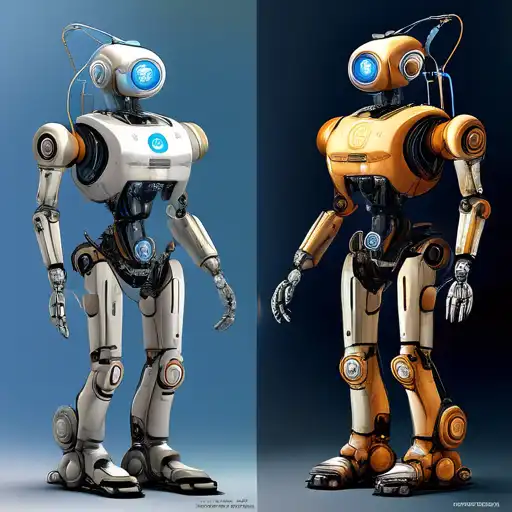Introduction to Robotics in Modern Technology
Robotics has emerged as a pivotal force in the evolution of technology, blending the boundaries between physical and digital worlds. This transformative field is not just about creating machines that can perform tasks; it's about redefining how we interact with technology on a fundamental level. From manufacturing floors to the depths of outer space, robotics is paving the way for advancements that were once considered the realm of science fiction.
The Role of Robotics in Industry and Everyday Life
The integration of robotics into various sectors has revolutionized operations, enhancing efficiency and precision. In industries such as automotive manufacturing, robots have become indispensable, performing tasks with a level of accuracy and speed unmatched by human hands. Beyond industrial applications, robotics is making its way into our homes and daily lives, from robotic vacuum cleaners to advanced prosthetics that restore mobility to individuals with disabilities.
Artificial Intelligence and Robotics: A Symbiotic Relationship
At the heart of modern robotics lies artificial intelligence (AI), enabling machines to learn from experiences, adapt to new inputs, and perform human-like tasks. This synergy between AI and robotics is accelerating the development of autonomous systems capable of complex decision-making, opening up new possibilities in fields such as healthcare, where robotic surgeons can perform precise surgeries with minimal human intervention.
Challenges and Ethical Considerations
Despite its potential, the rise of robotics brings forth significant challenges and ethical dilemmas. Issues such as job displacement, privacy concerns, and the moral implications of autonomous weapons systems are sparking debates worldwide. Addressing these concerns requires a collaborative effort among technologists, policymakers, and society to ensure that the benefits of robotics are realized without compromising human values and safety.
Looking Ahead: The Future of Robotics
The future of robotics is boundless, with ongoing research pushing the limits of what machines can achieve. Innovations such as soft robotics, which mimics the flexibility and adaptability of biological organisms, and swarm robotics, where multiple robots work together to accomplish complex tasks, are just the tip of the iceberg. As we stand on the brink of this new frontier, the potential for robotics to transform our world is both exhilarating and daunting.
For those interested in diving deeper into the world of robotics and its implications, exploring resources on artificial intelligence and automation can provide valuable insights into how these technologies are intertwined and shaping the future.
Conclusion
Robotics represents the next frontier in technology, offering unprecedented opportunities to enhance human capabilities and solve some of the world's most pressing challenges. As we navigate this exciting landscape, it's crucial to foster innovation while addressing the ethical and societal impacts of these advancements. The journey into the age of robotics is just beginning, and its full potential is yet to be uncovered.
